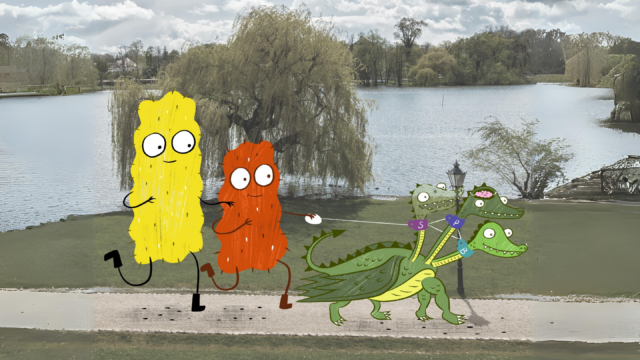Doctors Can Have Needle Fear Too! Helpful Strategies From a Needle Phobic Doctor
Dr. Kevin M. Windisch is a pediatrician at Girls to Women/Young Men’s Health in Dallas, Texas. He’s spent over 25 treating patients and is well-loved by both patients and colleagues.
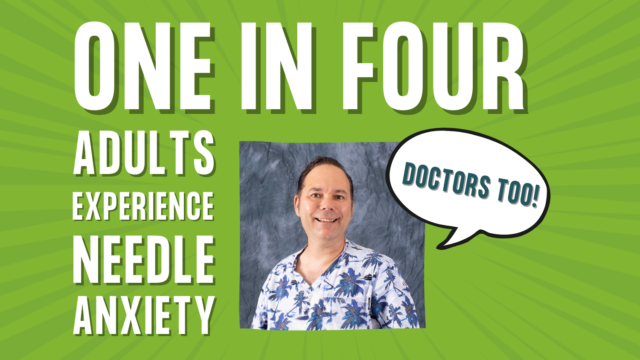
Dr. Kevin M. Windisch is the medical director at North Texas Job Corps in McKinney, Texas, and a pediatrician at Girls to Women/Young Men’s Health in Dallas, Texas. He’s spent over 25 treating patients and is well-loved by both patients and colleagues for his professional expertise and sense of humor.
He also has a lifelong fear of needles.
Dr. Windisch knows that he is in good company: one if FOUR adults share this common fear. He’s well aware that for many, it carries a stigma that absolutely no one deserves, particularly for men. It doesn’t mean he is “weak” or “totally irrational” or a “big baby,” but rather it is a unfortunate but normal consequence of negative experiences in childhood. It makes total sense, but can also be a major problem if left unchecked. Lack of awareness and stigma can both get in the way of getting people the help they need. We talked to him about what he does to make sure that fear doesn’t get in the way of making good medical decisions for himself, and his advice for the rest of us.
MF: Even though it is really common, most people don’t talk about needle fear as an issue for adults. And even less talked about among men versus women. Why do you think this is?
Dr. Windisch: I think that adults, men, in particular, don’t feel that they can allow themselves to appear weak so we don’t talk about our issues.
I think it is part of the macho culture. While this macho culture may be more obvious in some ethnic groups than others, I think in general, in the U.S., men are raised to believe (and expected by many) that they must be tough and not have pain or fear, or at the very least not show pain or fear. It doesn’t have to be this way!
MF: If someone is trying to ease needle fear for their husband, dad, or another male figure in their lives, how should they start the conversation?
Dr. Windisch: Gentle, nonjudgmental reassurance is a good start. Open communication predating this conversation will be key to having the rapport that is necessary. Acknowledgment that fear of needles is common among adults and not limited to children and certainly not childlike behavior is the next step. I think that this can next be approached by exploring what steps can mitigate this fear for the loved one.
MF: Are there any techniques you use personally or professionally to reduce nervousness during vaccinations?
Dr. Windisch: I use paced and abdominal breathing as well as biofeedback. Occasionally I use formal hypnotic sessions. When I had my first COVID vaccine, I brought two friends with me into the exam room, who were also due for their vaccines (It didn’t hurt that one of them happened to be a psychotherapist!) HackTheVax.org has great research-proven strategies that are great for anyone nervous about needles.
What You Can Take Away?
Needle fear is common for EVERYONE, even medical professionals, and it is an issue for men and women. Whether or not it’s talked about, a lot of people in your world struggle with it.
You have the power to reduce the stigma around needle fear by starting a conversation. Check out our Hack the Vax campaign for specific strategies and great ways to share with your family and friends.
About the Author
Dr. Kevin M. Windisch is the medical director at North Texas Job Corps in McKinney, Texas, and an associate at Girls to Women/Young Men’s Health in Dallas, Texas. He is board-certified in general pediatrics and certified by the American Society of Clinical Hypnosis. As the father of three children, he feels passionate about empowering young people to control their pain and anxiety.
You May Also Be Interested In

Blog Post
Pain in the…chest? Strategies to manage the pain and discomfort of chest binding
For transgender and gender-diverse people, chest binding can affirm identity and boost confidence, but it can also cause pain. Discover safe practices and tips to ease chest binding pain.
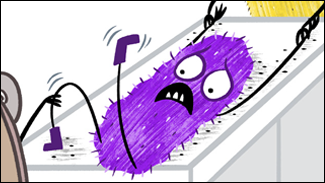
Blog Post
Can holding children down for shots traumatize them? A health psychologist says yes.
I’m a health psychologist and expert in medical illness, trauma, and pain, with 25 years of experience. If I could wipe out any practice that happens on the daily in medicine, VERY high on my list is holding down kids for medical procedures. While science and best practice guidelines from top medical organizations clearly say holding down kids is a terrible idea, it still happens every single day.
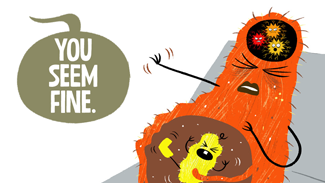
Blog Post
"But You Look Fine…": Gender Bias And Pain Care
Dr. Grace Kao's personal account (backed by powerful research) highlights how gender and bias play out when it comes to treating women's pain.
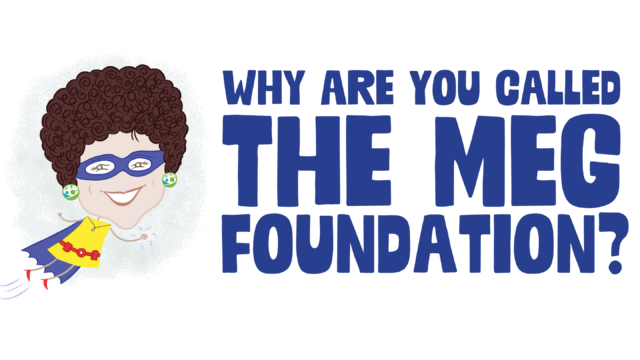
Blog Post
Why ARE we called the Meg Foundation?
Inquiring minds always want to know! I'm so glad you asked, because I LOVE this story!
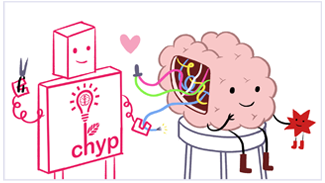
Blog Post
Getting to know CHYP and their innovative approach to chronic pain
CHYP is an online nonprofit for youth ages 13-24 that was built on the understanding that creative techniques – be it writing, yoga, art, acupuncture or other immersive experiences – can help rewire the nervous system’s pain routes.
